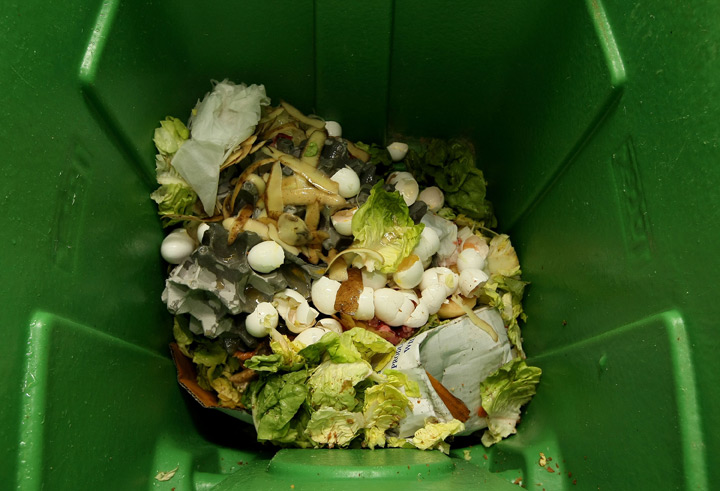TORONTO – Composting is being embraced by more and more Canadian households as an easy way to divert waste from landfills and produce nutrient-rich compost for your garden.

But what to do if you live in a high-rise without a backyard or curbside composting program?
According to Environment Canada, biodegradable materials, such as food waste, make up around 40 per cent of all residential waste in Canada.
The agency said diverting organic materials from landfills is “essential” and the environmental benefits of doing so include reducing greenhouse gas emissions and producing “valuable compost,” which can be used in home gardening, agriculture and horticulture industries as well as soil erosion control and landscaping.
Numbers from Statistics Canada show that composting is on the rise in Canada, with 61 per cent of all households participating in some form of composting – that’s nearly double the rate that composted in 1994.
Not surprisingly, people who lived in a single, detached home were way more likely to compost their kitchen waste compared to apartment dwellers (50 per cent vs 22 per cent).
Condo life presents some challenges for those who would otherwise like to compost their kitchen waste, from privately-managed garbage collection systems to an absence of backyard space.

Get breaking National news
Apartment and condo dwellers who live in buildings that don’t offer a curbside composting program have a few options for joining the composting ranks.
Make your own indoor compost bin
Making your own indoor compost bin is a cheap and flexible way for people to compost in small spaces.
With a few simple materials and tools, you can build your own compost bin in an afternoon.
There are lots of online tutorials that walk you through the process (such as this one here, or here).
Buy an indoor composting system
If you’re not an avid DIY’er, several companies make and sell indoor composting systems, such as Food Cycle Science’s indoor residential composting system and NatureMill’s ECO Series models.
Start a community composting program
If composting in your apartment really isn’t an option, eco-champions recommend canvassing your neighbourhood for places to set up a community compost bin.
Locations for community composters could range from community gardens to municipal property. Environmental organizations, such as Winnipeg non-profit Green Action Centre, offer tips and resources for people wanting to start their own community composting program.
The city of Winnipeg already has a number of community compost sites operating for those unable to compost at home.







Comments